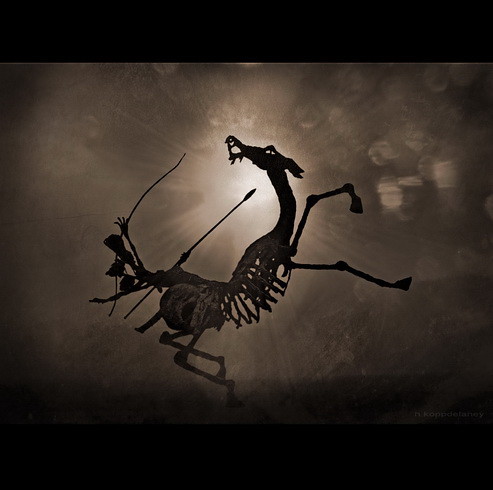Christmas Day–Mass During the Day
Video: Andrew Lua
My dear friends, have you ever come across that commercial for data roaming services that used to be screened in our local movie theatres? In it, a Singaporean tourist enters what looks like a small eatery in Hong Kong, and says to the woman at the counter, Hi, do you have wifi? She immediately turns toward the back of the restaurant and yells, Wai Fai! A big tall guy in a white chef’s coat appears, wiping sweat off his face with the towel around his neck. The tourist asks him, Wifi? … Do you have wifi password? He nods his head, and says in Cantonese, Hai, ah. Meh si, ah? (Yes. What’s the matter?) The Singaporean repeats his question. More slowly this time. Trying to put on a Cantonese accent. Do… you… have… wifi, ah? The chef thinks for a moment, smiles broadly, nods vigorously, and exclaims, Wai Fai! Wai Fai! Then, he says in Cantonese, pointing to himself, Ngor me hai Wong Wai Fai, lor? (I am Wong Wai Fai!)
I must confess, sisters and brothers, that I like this commercial very much. And not just because it makes me laugh out loud. Although that helps. I like it also because, even though the situation depicted is obviously exaggerated, it’s quite easy to identify with the tourist’s frantic search for a wifi connection. Probably anyone of us who has ever travelled abroad without a data roaming plan knows what that feels like, right? The burning desire to connect? But that’s not all. Beyond the obvious humour, there’s also some irony in the commercial too. Do you see it?
The humour comes, of course, from the tourist’s frustrated desire for cyber connectivity. And yet, frustrated though the tourist may be, doesn’t the situation also present him with an opportunity to connect in a different way? In place of the wifi hotspot that he is seeking, the tourist is presented with a chance to connect instead with Wong Wai Fai, the Hong Kong chef. Will the foreigner take advantage of this opportunity? For example, by introducing himself in return? And perhaps even by sitting down for a meal, or a drink? Or will he simply move on to the next shop? Ironically allowing his ongoing search for cyber connectivity to prevent him from connecting with the real person before him?
The yearning, frustration, and irony of making connections. Isn’t this also what we find in our Mass readings on this Christmas Day? The first reading is addressed to a people in Exile. Far away from home. A people who, for a very long time, have been frantically seeking to connect. Not just with a wifi hotspot. But with their God. And, in the reading, God finally answers their prayers by making them a very consoling promise. A promise of salvation and redemption. A promise that is partially fulfilled when the people are finally brought back to their homeland. When they eventually return from Exile. But this promise, made in the first reading, actually goes beyond the return from Exile. For the prophet speaks also of a time when the people will be able to see the Lord face to face…
For us who are Christian, the fulfilment of this promise takes place finally in the coming of Christ at Christmas. When the Word was made flesh. When, having spoken so often in the past only through prophets, God finally speaks to us through his Son. In whom we are given the chance to see and connect with the invisible God face to face. And to realise that even more than our yearning to connect with God, God too yearns to connect with us. Isn’t it true that, at Christmas, what we celebrate is the incredible opportunity to experience a real personal connection with the One whom we believe created the whole universe out of nothing. And yet, who loves and cares for us so much, as to speak to us through Christ, the only begotten Son.
But that’s not all. In addition to the deep yearning for connection, and the promise of fulfilment, like that commercial, we also find in our readings today frustration and irony. Frustration on the part of the people, as well as on the part of God. For the gospel reminds us that, although the Word was in the world that had its being through him… the world did not know him. Although he came to his own domain… his own people did not accept him. Ironically, some of the people eagerly awaiting the fulfilment of God’s promise, rejected it when it finally arrived. Some of the people who were frantically searching for connection with God, did not recognise the opportunity when it presented itself.
And, let’s face it, sisters and brothers, much as we may wish to deny it, it’s actually not all that difficult to see how this could happen. To appreciate how it might be possible to fail to connect with God, even when God appears to us face to face. For it’s likely that many people in Jesus’ day were awaiting a mighty warrior, with power to conquer the Roman army. As a result, they failed to take notice of the helpless infant. Who came first to melt hardened hearts, in order to give them power to become children of God. Isn’t this situation not unlike that of the tourist, whose search for cyber connectivity ironically blinds him to the chance of connecting with a real person?
And isn’t this a danger that we face as well. We who remain constantly connected through our mobile devices. And yet find it difficult to have a single meaningful conversation with the closest members of our own family? Do we not run the risk of missing the chance of connecting with Christ, simply because we are preoccupied with so many other things? Even things like preparing for Christmas parties and liturgies. Putting up Christmas decorations. And exchanging Christmas presents.
If this is true, then what can we do about it? Perhaps what we need to do is simply to deepen our yearning. To take the opportunity, in this holiday season, to sit quietly with that longing that we so often experience within our hearts. The need we have to connect with others. And not be too quick to let it lead us to pick up our phones, or to turn to our computer screens, or to rush off to one activity or another. But to gaze first at the baby Jesus lying in the Manger. Allowing him to lead us to those places in our hearts where we need him most. To console us, and to encourage us. To heal us, and to strengthen us. And then to draw us to reach out to those others around us, who may also be yearning to experience meaningful connections.
My dear friends, Christmas is indeed a time to joyfully celebrate connections. Connection with our deeper selves. Connection with our needy neighbours. Connection with our loving God. But for this to happen, we need first to ask for the courage to do what that Singaporean tourist in the commercial is invited to do. To move from obsessing only about cyber connectivity to opening ourselves to true personal intimacy.
Sisters and brothers, what must we do to allow the baby Jesus to lead us from wifi to Wong Wai Fai today?



